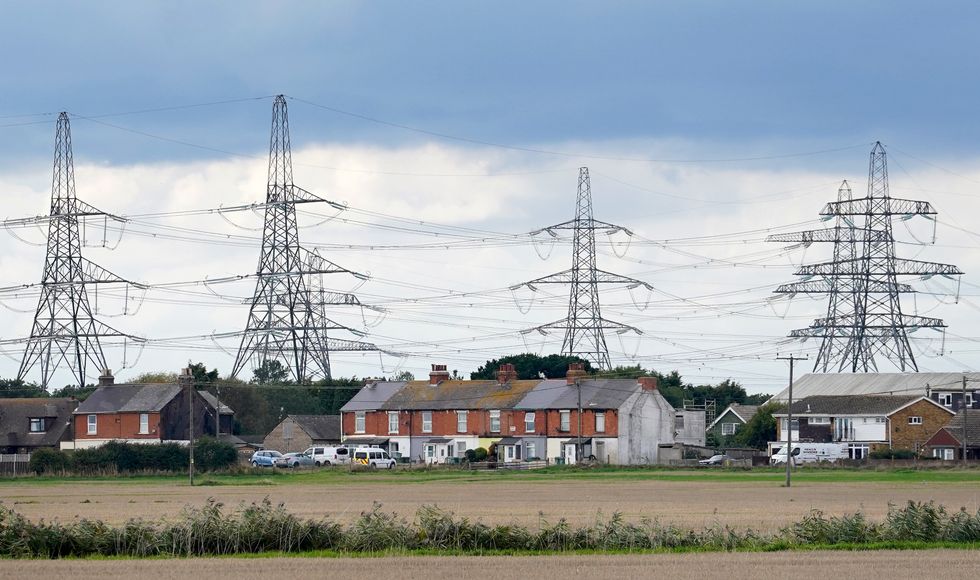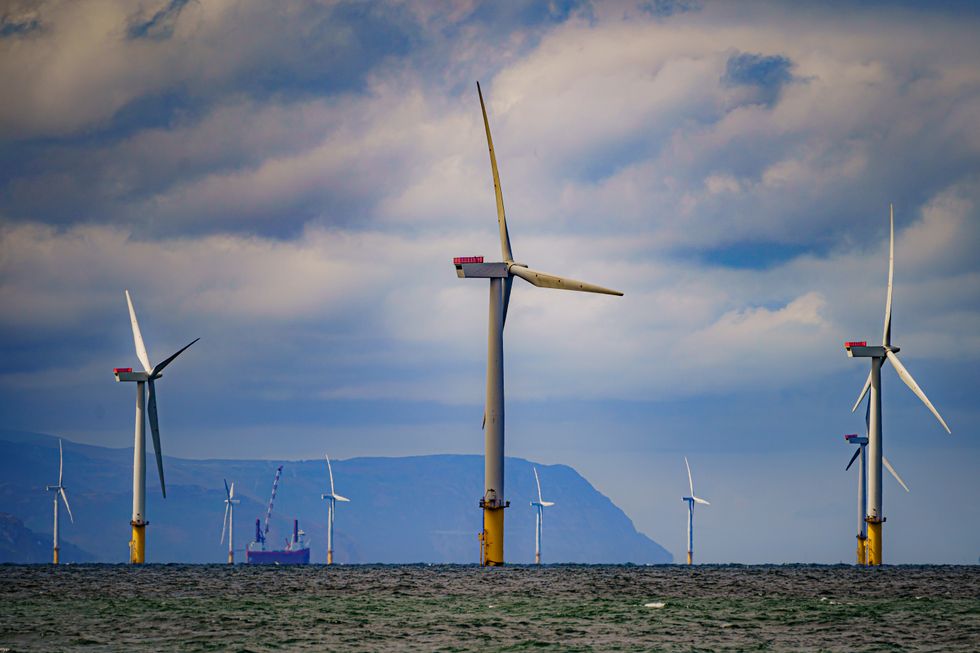Labour accused of ‘bullying’ to achieve net zero goals as ‘devastated’ locals voice concern about communities ‘surrounded’ by pylons
Labour has been accused of “bullying” Britons to achieve its net zero goals after laying down plans to build thousands of new pylons in rural areas across the UK.
Energy Secretary Ed Miliband has pledged to make the energy grid carbon neutral by 2030 – and has called the proposed roll-out of new pylons, wind turbines and solar panels a matter of “national security”.
His vow to “take on the blockers, the delayers, the obstructionists” has drawn criticism from campaigners from Yorkshire to North Wales, who claim the Government is riding roughshod over local concerns.
In Ardleigh, Essex, residents are facing off against one of the biggest planned pylon projects in the country – which 72-year-old Chris Whitfield has labelled a “constant nightmare”.

The scheme involves a 110-mile pylon line running from Tilbury to Norwich, featuring 520 pylons standing 50 metres high.
“We’re going to be surrounded. There’s not going to be anywhere in our parish that you won’t see these pylons,” said Whitfield.
Residents are said to have broken down in tears during statutory consultations over the “devastating” effects of the project.
And while the National Grid’s deputy corporate affairs director Tom McGarry acknowledged the company is taking steps to minimise disruption, he has rejected campaigners’ calls for offshore alternatives.
MORE NET ZERO BACKLASH:
- Heat pumps EXPOSED as net zero push ‘fully or partially funded’ by your’ taxes
- Energy bills update: Labour’s net zero plan ‘only way’ to cut costs, Miliband claims
- Britons brace for higher energy bills as oil imports SOAR despite Labour’s ‘Net Zero madness’

The offshore plan would be “four times more expensive” according to McGarry, who stressed projects must provide value for money for electricity bill-payers.
He vowed the grid upgrades are “urgently needed” as Britain moves away from its 1960s power infrastructure designed for coal-fired stations.
“We need to effectively rewire Britain,” said McGarry, noting that renewable energy sources now require electricity to be transported from different locations, such as North Sea wind farms.
Opposition to pylon projects is spreading across the UK, with local authorities in Lincolnshire, Norfolk, Suffolk, Derbyshire and Nottinghamshire all opposing similar schemes.

Rosie Pearson, who opposes the Essex pylon route, reports a “groundswell” of support from campaigns across the country.
She accused Labour of “forcing any old project through come what may” and using “bullying rhetoric” to achieve their goals.
“More and more people are talking about this, and becoming aware of the issue,” Pearson added.
Sir John Armitt, chairman of the National Infrastructure Commission, acknowledged the changing nature of Britain’s energy system but stressed the need for better community engagement.
He also laid into Labour’s recent messaging which appeared to dismiss local concerns, saying it “sounds a bit like: ‘You must listen. These are nationally important issues, and therefore please come to terms with this and accept it.'”
The Department for Energy Security and Net Zero defended the infrastructure improvements as essential for delivering clean power, while maintaining that “communities have always had a say in the planning process.”
It added that alternative solutions would be more costly for electricity bill-payers.

